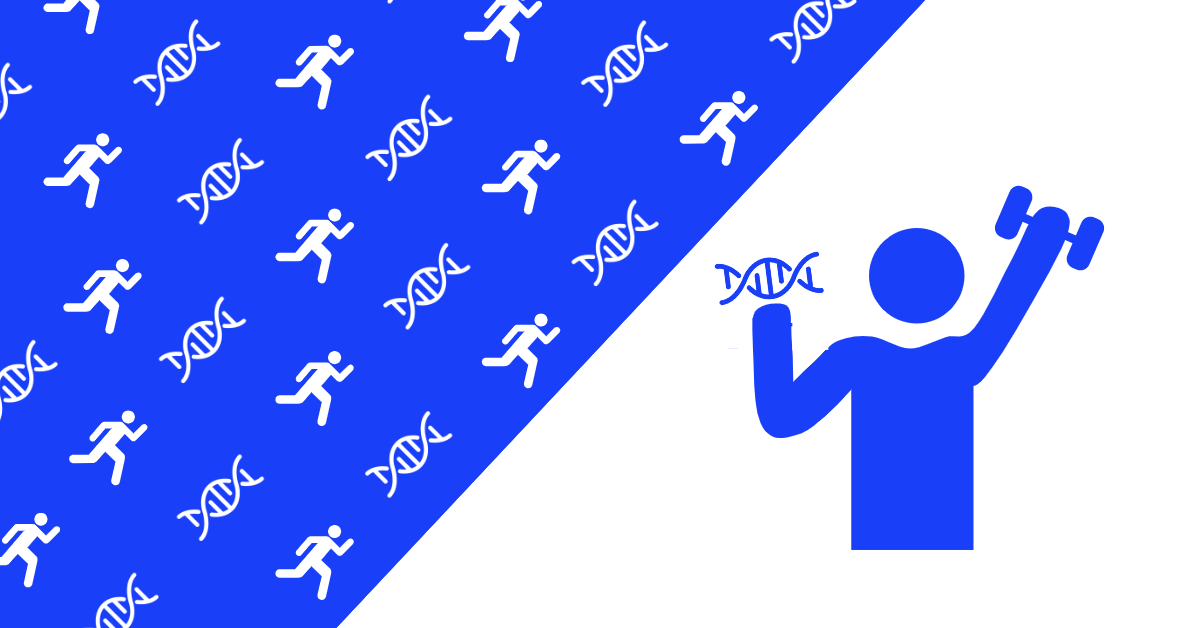Consider this: the genetic makeup of a star athlete is different from the genetic makeup of a couch potato. However, that doesn’t mean that a star athlete won’t become a couch potato or a couch potato can’t become a star athlete.
A new study found that genes can explain up to 72% of the difference in outcome between people participating in the same type of exercise and research has also shown that there are hundreds of genes that influence the way your body not only responds but also adapts to exercise.
Between an innate human ability to adapt and genetic testing, it’s possible for you to improve your athletic ability and physical response to exercise. Pushing yourself to reach your fitness goals with an exercise that you might not be naturally suited for can result in injury and loss of motivation. Mitigating these risks is a matter of finding the right type of exercise for your genotype and customizing a fitness program that plays to your (natural) strengths and respects your (natural) limits.
Genetic testing can assess your athletic capacity to identify specific types of exercise that are effective for your genotype. For example, if you don’t have variants in certain genes that affect your endurance, then you are naturally suited to exercises like cycling, water aerobics, and mountain climbing. This is because your genes predispose you to find exercises that require heavy oxygen intake and continuous physical activity easier. An endurance athlete’s muscles are designed for repetitive training and longer duration cardio. This athlete sustains leaner muscle mass as opposed to bulky muscle development as a result of endurance training.
Additionally, an individual who responds well to endurance training, might not be genetically suited for power training. A power athlete excels in high-intensity exercise, short-duration training, and weight lifting. Someone genetically engineered for power performance would excel and benefit from exercises like sprinting, powerlifting, and burpees.
Exercise should give you an endorphin boost. It should be a source of stress relief. If you’re not feeling that boost or relief, you’re lacking the motivation to exercise, can’t seem to work out without sustaining muscle strains or other injuries, or if you’re wondering why the Peloton thing isn’t doing you the justice it’s doing for your friends, it’s time to take a step back and realize: some people are biologically engineered to respond effortlessly to exercise while others have to work harder for it.
Just because your genotype is suited for power and not endurance, doesn’t mean that you can’t participate in those exercises--you can, but you’ll have to train differently, you might not build the lean muscle that’s characteristic of endurance athletes, and you’ll need to be strategic about your power training routine. At the end of the day, your genes can help you strategize, and guide you toward the right fitness program for you.
